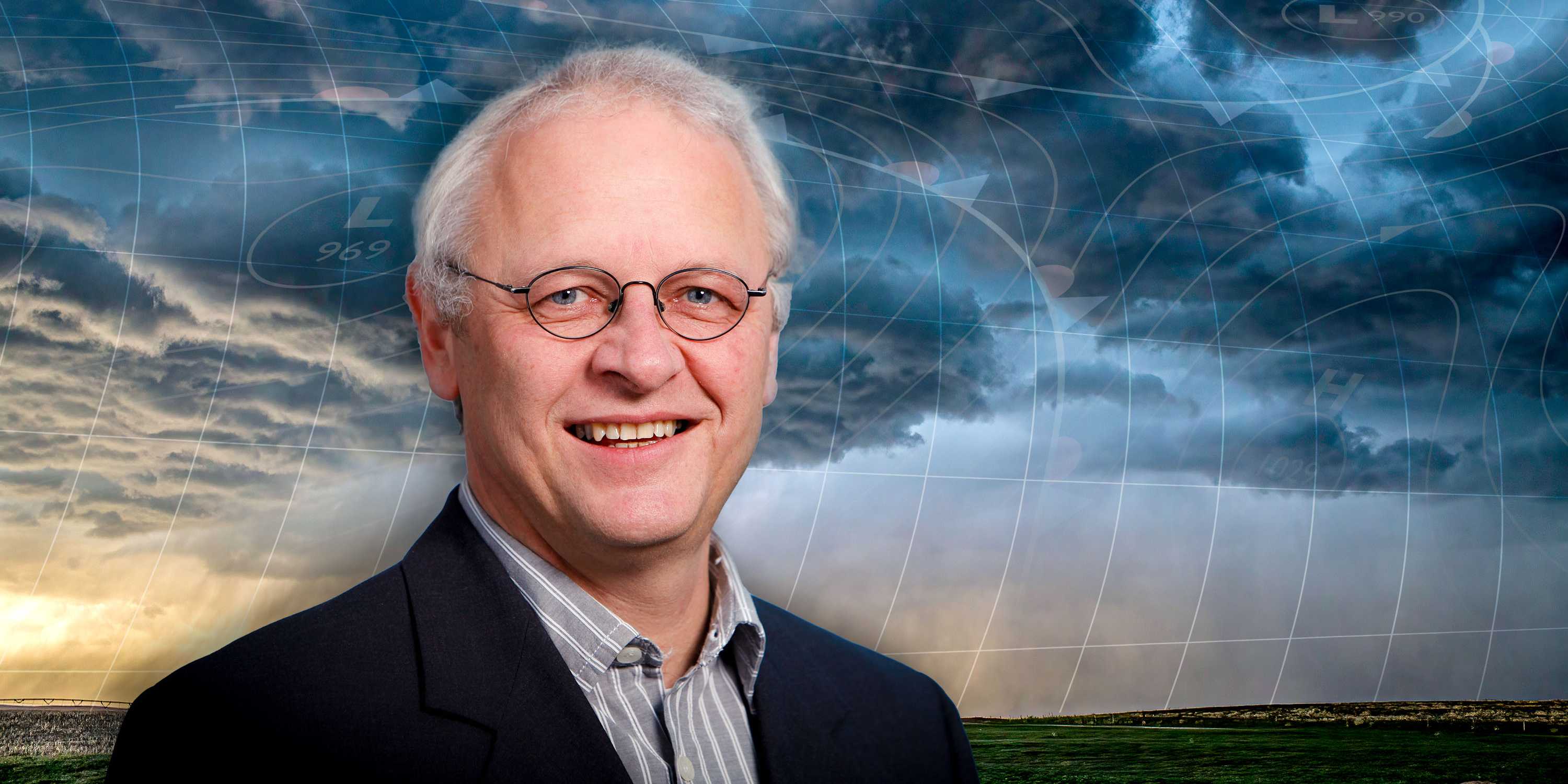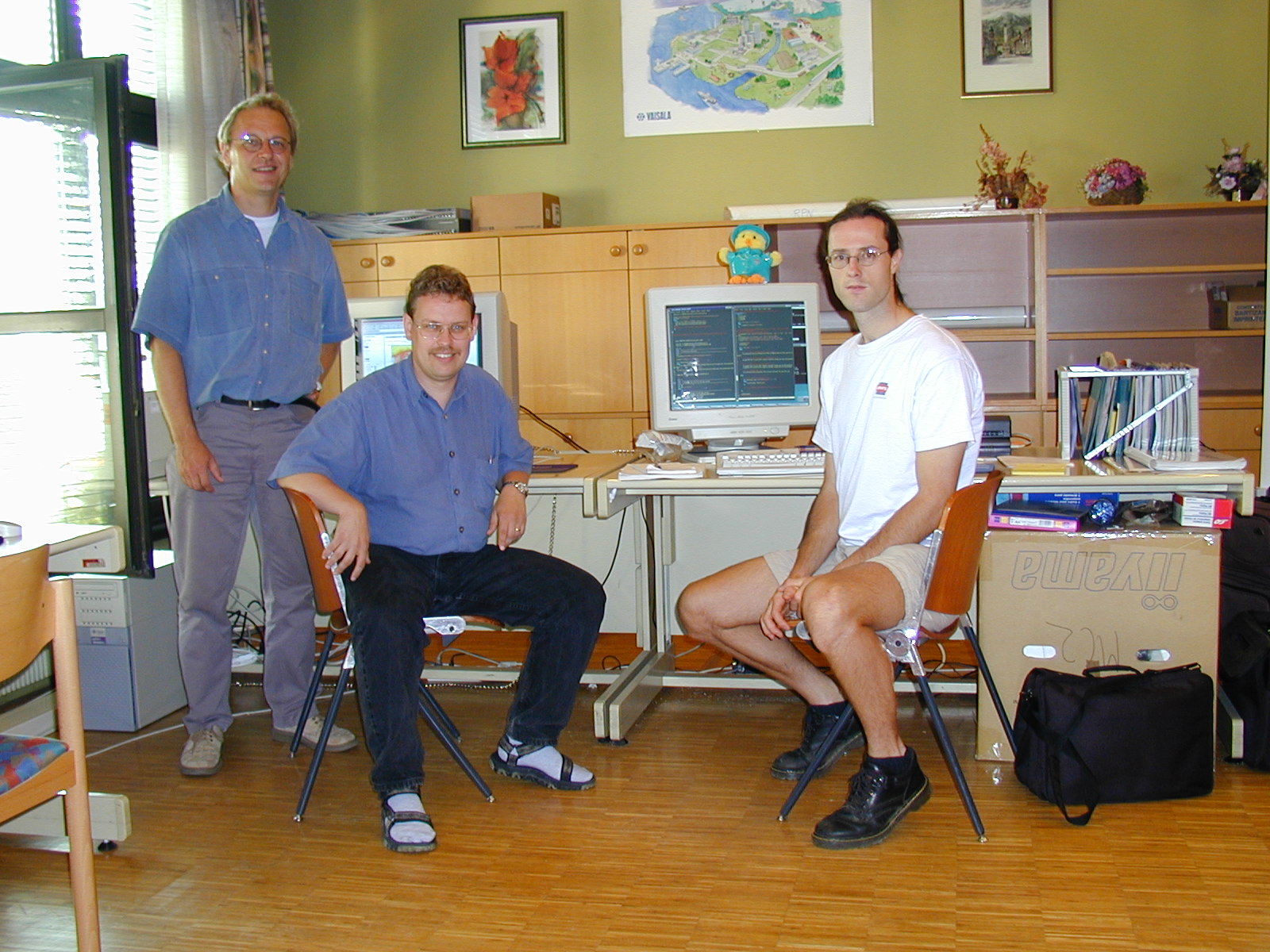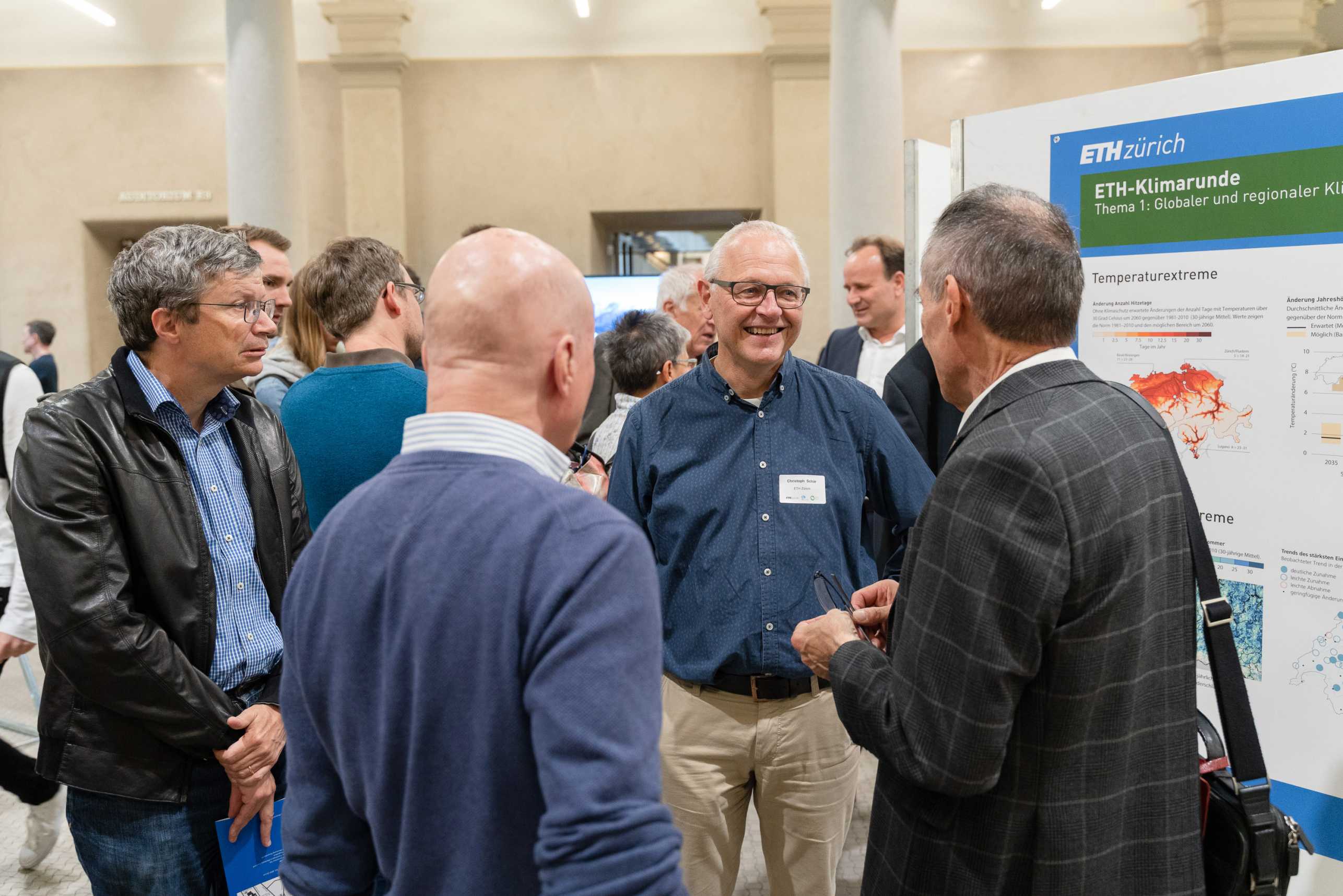Christoph Schär is one of the Swiss climate scientists who have shaped high-resolution climate modelling. He is now retiring after more than 35 years at ETH Zurich. In this portrait, he explains why he himself never tires of researching climate change.

"Instrumental observations and reconstructions of global and hemispheric temperature evolution reveal a pronounced warming during the past approximately 150 years." This is the first line of Christoph Schär's most cited paper. What's surprising is that what we see as the consensus in science today was a minor sensation when the paper was published in 2004.
The summer heatwave of 2003 was a "freak event", and climate science wasn't really able to explain how it fit into the picture. Schär hypothesised that climate change would cause such extreme events to occur much more frequently in the future - more frequently than would be expected based on average warming alone. Today we know that he was right.
From weather to climate
Schär was born in Wil, in the canton of St Gallen, in 1958.Having always been really interested in the natural sciences, he began studying physics at ETH Zurich, with a view to devoting himself to astrophysics. But things turned out differently. He first landed in the field of weather forecasting, or, more precisely, in the research of low-pressure areas. As it happens, cold fronts and the shower cells behind them are still the weather pattern that Schär finds the most fascinating. "The situation was very different before. We had only a vague idea of where the energy for the formation of a low-pressure vortex came from, and our modelling had a grid spacing of around 100 kilometres. That was only enough to make rough calculations. It wasn't sufficient for us to fully explain the weather phenomena embedded in low-pressure areas, such as heavy precipitation."
Those words also describe the core of Schär's research work: he was forever at pains to model at smaller scales, which not only makes the predictions more precise in terms of time but also increases their relevance because it means they can be applied more locally. "Today, our climate models have a grid spacing of around 2 kilometres - at the start of my career, I would never have believed that we could make such rapid progress," Schär says. Initially, only a handful of research groups worldwide were active in this field, "and sometimes we were ridiculed," he goes on to say, smiling. Today, researchers are working across the globe on increasing the precision of climate models.

There is a crucial difference between weather and climate. While the former can be observed and the modelling easily verified, this is much harder to do for the latter. However, since it was clear to Schär early on that climate change would be the decisive factor in the future, in the 1990s he set about also modelling the effects of climate change on a smaller scale. The "freak event" was a wake-up call for him, too. In recent years, his research group has published numerous important articles on regional climate change and its impact on extreme weather events. Schär was awarded the Vilhelm Bjerknes Medal in 2023 for his many years of in-depth research work.
The crux of modelling
Schär is also aware that modelling doesn't always have the best reputation and is occasionally dismissed as being arbitrary. But he feels this is also a matter of communication: "All modelling has limitations, and we need to explain this better. But if different models come up with the same results, then that's a clear indication they're onto something." When giving public lectures, he also takes questions from climate sceptics. In his answers, he makes a clear distinction: "In the field of climate change, there are mathematical and physical facts that are non-negotiable. It makes just as little sense to hold a vote on whether Pythagoras' theorem is true or not." But when it comes to doubts about the interpretation of climate data, he takes a different tack: here, he often tries to bring scientific facts and people's personal experiences together.
Is climate research political per se?
Today, climate research is highly polarised and is often suspected of having a political agenda. Was Schär never interested in getting more politically involved? "While I was tidying up my office, I found the scientific opinion we wrote as part of the consultation process for Switzerland's first CO2 Act of 1994. We clearly stated that the measures proposed at the time didn't go nearly far enough- so even back then we were already involved in the political processes; but it was a long time before urgent measures got off the ground," Schär remembers. He also regrets that there aren't more scientists in parliament.

He himself has given numerous public lectures on climate change, but he's a soft-spoken man who shuns the limelight and wants to avoid standing in the line of fire; however, he is very grateful for his colleagues, who do an excellent job of waking up the public and politicians to the reality of climate change even though their involvement is bound up with a lot of unpleasantness.
The future and fears for the future
Even after his retirement, he continues to support students with their Master's and doctoral theses. "I'm inspired by young people because they see the world differently to me. But speaking with them, there's no escaping the fact that we're leaving a difficult climate legacy for future generations," Schär says thoughtfully. He fully understands that many people are worried about the future and are also fed up hearing about climate change. "The answer to that is more knowledge! I'm convinced that we'll succeed in mitigating climate change, but there's no way we can prevent it. Personally, I find it helps to take a more scientific look at climate change so as to understand more precisely where we need to apply the levers," Schär says.

Ask Schär what he remembers most vividly about his time at ETH, and he will promptly answer: the farewell lecture given by Hans Ulrich Dütsch in 1986. It was the first time he had heard someone at ETH state publicly that humans had probably caused the hole in the ozone layer, thereby establishing the idea that humans could indeed have an influence on climatic factors. Is he planning a similar exploit at his farewell lecture on 11 March? "No, I'm not really one for going out with a bang," Schär says with a laugh, but he does promise to tell it how it is.
Farewell Lecture
On Monday, 11 March at 5.15 p.m., Professor Christoph Schär will give his farewell lecture entitled "Der Klimawandel - seit langem vorhergesagt, seit 20 Jahren offensichtlich " in the Audi Max of the ETH main building. The event will also be streamed live at: external pagehttp://bit.ly/audimax-stream.






